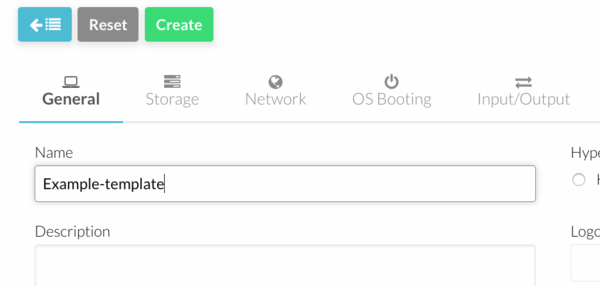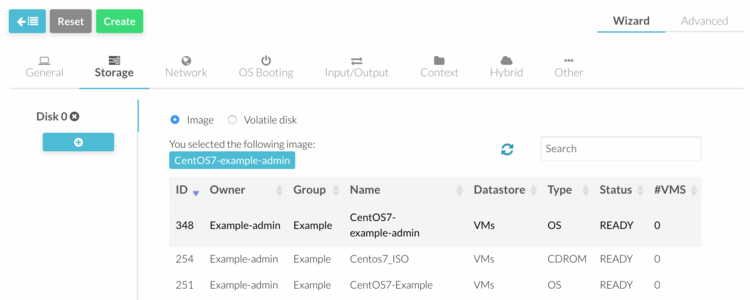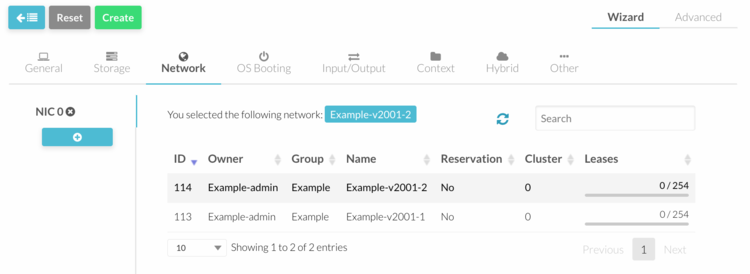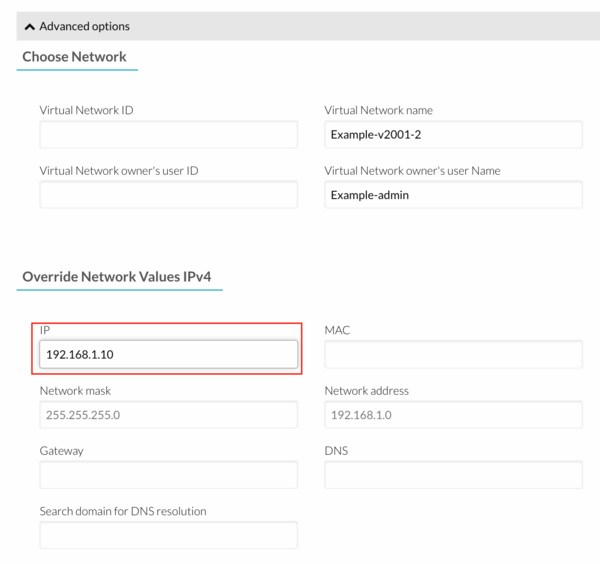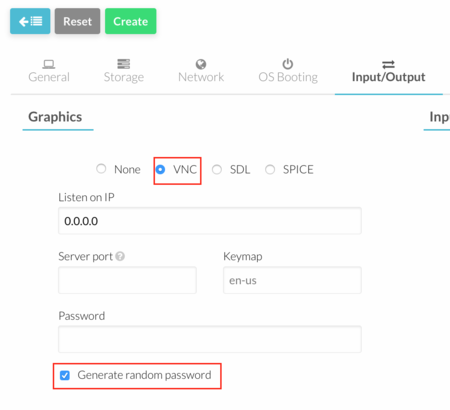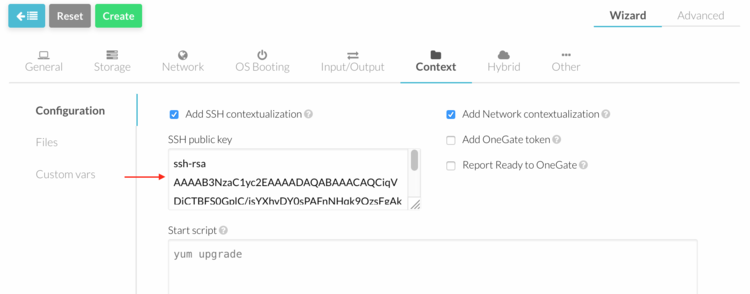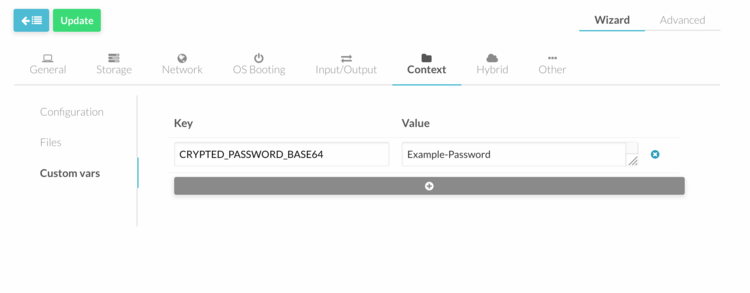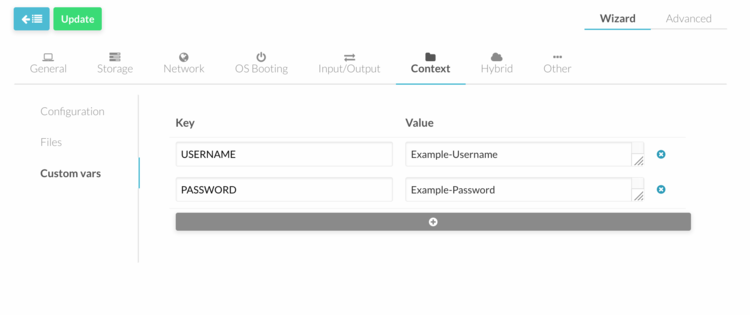Difference between revisions of "OpenNebula Templates"
Jump to navigation
Jump to search
| (5 intermediate revisions by the same user not shown) | |||
| Line 13: | Line 13: | ||
#Click "Create" button. | #Click "Create" button. | ||
=== | ===Basic Template for Linux VMs=== | ||
The basic procedure is as follows: | The basic procedure is as follows: | ||
* Add a template name in "General" menu. | * Add a template name in "General" menu. | ||
| Line 42: | Line 42: | ||
[[File:Template_rootpwd.png|thumb|none|upright=2.5]] | [[File:Template_rootpwd.png|thumb|none|upright=2.5]] | ||
The [[Contextualization_of_Linux_VMs|following page]] contains more information regarding the Context section. | |||
=== | ===Basic Template for Windows VMs=== | ||
The basic procedure is as follows: | The basic procedure is as follows: | ||
* Add a template name in "General" menu. | * Add a template name in "General" menu. | ||
| Line 69: | Line 69: | ||
[[File:Template_userpassword.png|thumb|none|upright=2.5]] | [[File:Template_userpassword.png|thumb|none|upright=2.5]] | ||
The [[Contextualization_of_Windows_VMs|following page]] contains more information regarding the Context section. | |||
==Update a Template== | ==Update a Template== | ||
Latest revision as of 09:24, 25 April 2017
Create a new Template
- Log into OpenNebula Sunstone.
- Go to “Templates” in the left menu and click on “VMs” in the drop down menu.
- Click on the "+" button to create a new template. See below.
- Click "Create" button.
Basic Template for Linux VMs
The basic procedure is as follows:
- Add a template name in "General" menu.
- In "Storage" tab, choose a storage disk. If your template requires more disks, click on "Add another disk" and select it accordingly.
- In "Network" tab, select a Virtual Network, which the instantiated virtual machine(s) will be connected to. If your template requires more network interfaces, click on "Add another nic" and select it accordingly.
- If a fixed ip address is required, click on "Advanced Option" button and type the fixed address in the "IP" field.
- In "Input/Output" menu, select "VNC" Graphics and tick "Generate Random Password".
- In "Context" menu, add SSH keys in the "Public Key" field and make sure that "Add SSH contextualization" and "Add Network contextualization" are ticked.
- In "Context" menu, you can define a root password under "Custom Vars". Add the following entries: KEY= CRYPTED_PASSWORD_BASE64, VALUE= "password" and press "Add" button.
The following page contains more information regarding the Context section.
Basic Template for Windows VMs
The basic procedure is as follows:
- Add a template name in "General" menu.
- In "Storage" tab, choose a storage disk. If your template requires more disks, click on "Add another disk" and select it accordingly.
- In "Network" tab, select a Virtual Network, which the instantiated virtual machine(s) will be connected to. If your template requires more network interfaces, click on "Add another nic" and select it accordingly.
- If a fixed ip address is required, click on "Advanced Option" button and type the fixed address in the "IP" field.
- In "Input/Output" menu, select "VNC" Graphics and tick "Generate Random Password".
- In "Context" menu, you can define a user account under "Custom Vars". Add the following entries: KEY= USERNAME, VALUE= "your-username", KEY= PASSWORD, VALUE= "your-password" and press "Add" button.
The following page contains more information regarding the Context section.
Update a Template
- Log into OpenNebula Sunstone.
- Go to “Templates” in the left menu and click on “VMs” in the drop down menu.
- Click on the template and press "Update" button.
- Make the necessary changes and press the green "Update" button to save.

